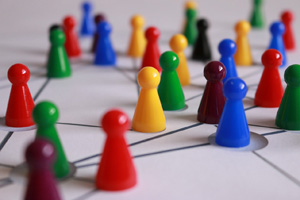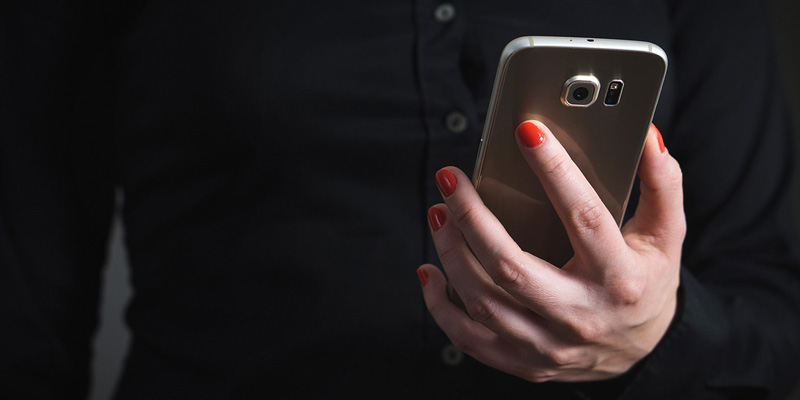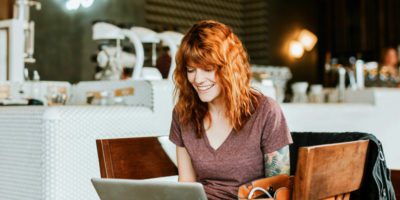Carl Miller is the research director for the Centre for the Analysis of Social Media at the think tank, Demos. In 2015 he wrote for the Sunday Times on digital politics, and is currently writing a book, Power, on how social is changing in the wake of the digital revolution.

“…Female MPs were more active on Twitter during #GE2015 than their male colleagues. More were on Twitter, and they sent more Tweets per person…”
How does social media allow us to delve deeper into behaviour and demographics?
Social media is (my opinion) the biggest thing to happen to social science and research in a generation. It’s the datafication of social life; the datasets it generates are enormous, real-time, rich, linked. We’re only at the very beginning of the birth of new, powerful, data-driven forms of research. And if it’s done in a way that is ethical, respects people’s privacy, and in the public interest, it could deliver huge amounts of benefits to us all.
We could understand disease better, we could find new ways of helping vulnerable people. And of course, we can support people engaging in politics and political debate in an entirely new way, including many people who otherwise would have very little to do with Westminster.
What role is social media playing in the current general election and are there any gender differences in the way we consume political information?
Since 2008, political campaigns across the world have realised that the digital world is a key new battleground in the contest for power. The role of social media will have both really visible and invisible sides to it. The political campaigns will be churning out content to galvanise their own supporters, get the party faithful excited, and, for the floating voters, try to frame what the election is ‘really about’. You’ll also start to notice targeted advertising, especially if you live in a target seat and might be a floating voter.
The campaigns will also be using data and analysis from social media, alongside other data that they have, for decision-making, and that’s the invisible side. They’ll look to see what people talk about, how they react to key political events, and will use it to inform the messaging that they do, even where they send their volunteers, money, and party leaders.
We have noticed an important gender difference from 2015. Whilst women tend to use Twitter more generally, last election only 25% of the Tweets talking about politics were from women, and just 19% during key moments like the ‘not-a-debate-debate’ between Cameron and Miliband.
Female MPs were more active on Twitter during #GE2015 than their male colleagues. More were on Twitter, and they sent more Tweets per person. (Full figures here.)
How can social media enable political parties to overcome spending caps on traditional media?
The Electoral Commission’s report in 2015 said that “there is the potential for less transparency” because social media isn’t (amazingly) a specific reporting category.

How are UK election campaigns being influenced by US style strategies?
Campaigns learn from each other all over the world. Many import experts from abroad to use the best techniques. The Obama campaigns in 2008 and 2012 re-wrote the rulebook for digital campaigning; and the biggest lesson from them was how digital campaigning could translate into tangible results: money and volunteers as well as visibility and messaging.
What is the risk of the echo chamber effect when people find their news via social media?
I’m really worried about the echo chamber. You tend to follow people that you agree with on social media, and they tend to follow you. You’re also more likely to share stuff that conforms with your general world view.
Put that together, and you have your basic political beliefs being echoed back at you on social media in a thousand of different ways; not just news but opinions, points of view, and emotions too. That causes something researchers call ‘group extremity shift’; where we become more and more convinced that our beliefs are right, and our opponents are wrong.
The big worry with this is that it damages our ability to disagree with each other in a civil way. Living in echo chambers, we might end up thinking that our opponents are ignorant (they must not have the facts we have!) or even evil (they must deliberately ignore the facts!). Both are obviously harmful to our democratic health.
In political fiction such as Homeland and House of Cards we’ve seen use of manipulation of social media. What are the risks of this in the UK?
If only it were fictional! There’s huge general worry at the moment that disinformation is happening, and that it’s part of deliberate campaigns. Journalists have courageously uncovered ‘troll farms’ in Russia where hundreds of people are paid to pretend to be normal social media users, skewing the debate in one direction or another. A Buzzfeed investigation during the US election found that fake news generated more engagement than real news!
I could go on. The online environment is changing really rapidly. But the risk is definitely there. I haven’t seen any clear signs of it happening the UK yet, but with a month to go, it has to be something we all watch out for.
https://www.demos.co.uk/research-area/centre-for-analysis-of-social-media/
https://twitter.com/carljackmiller





